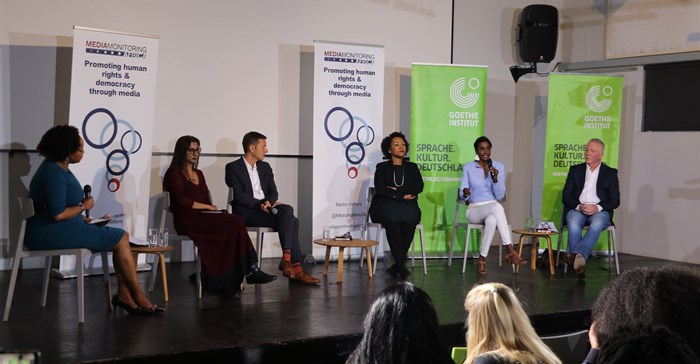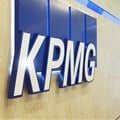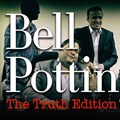The future of journalism is about the future of democracy, but all over the world journalism is in a crisis - a crisis that threatens not only the journalism sector but democracy itself.

All the panellists. Picture © Goethe-Institut South Africa.
“Defending the rights of journalists is about the right of freedom of expression in South Africa and Germany,” says Martin Schäfer, the German Ambassador to South Africa, in his address to guests to the Future of Journalism Series, Part 1: Media Credibility.
Sector in decline
The event, held at the Goethe-Institut, which also hosted the event together with Embassy of the Federal Republic of Germany and Media Monitoring Africa, discussed the topic through a panel facilitated by the SABC’s Tsepiso Makwetla.
Panellist, Holger Stark, Die Zeit & Zeit Online, Germany, says while we live in the best of times, there is no question that journalism is in a crisis. “This is not a South African problem, but a worldwide one. Journalism circumstances have changed dramatically, and the sector is in decline.”
The collapse of journalism is also indicative of the society we live in, says Chris Vick, spin doctor and media strategist. “There is an ethical collapse in South African society - think of the Tiger Brands, KPMG and McKinsey scandals. As South Africans we are affected by these scandals,” he says.
Time to check facts
It is when journalism falls short in terms of credibility, that there is a crisis, adds Nikiwe Bikitsha, broadcaster and journalist. “However, recent research shows that contrary to what we see online, there is a lot of trust in the news with 49% of people surveyed trusting the news. The problem is that over 70% of people cannot distinguish between real and fake news,” she says
Stark points out that this is exactly why journalists must distinguish themselves.
Journalists must not add to the noise out there. They need to take the time to check facts.
Panellist, Dr Glenda Daniels, Wits Media Studies, says while the sector is doing a good job, as stories such as the Gupta Leaks prove, journalists must agree that there is a credibility problem. “All journalists have an agenda, but if you deal with the facts and move away from the social media space the sector can get its credibility back.”Guided by the press code
She adds that social media and blogging are not journalism.
Public relations (PR) officers are also calling themselves journalists. They are not and we need to separate journalism from these activities.
Glenda Daniels 27 Mar 2019
Bikitsha adds that the Constitution gives the media a lot of power.
Therefore, we need to be held to that standard. We must be guided by the press code to provide news that is true, fair and accurate. This is the standard journalists must hold themselves accountable to.
Vick agrees. “In any society, the role of the media is to hold the powerful accountable. That must make us humble, not the elite of a society.”






















































